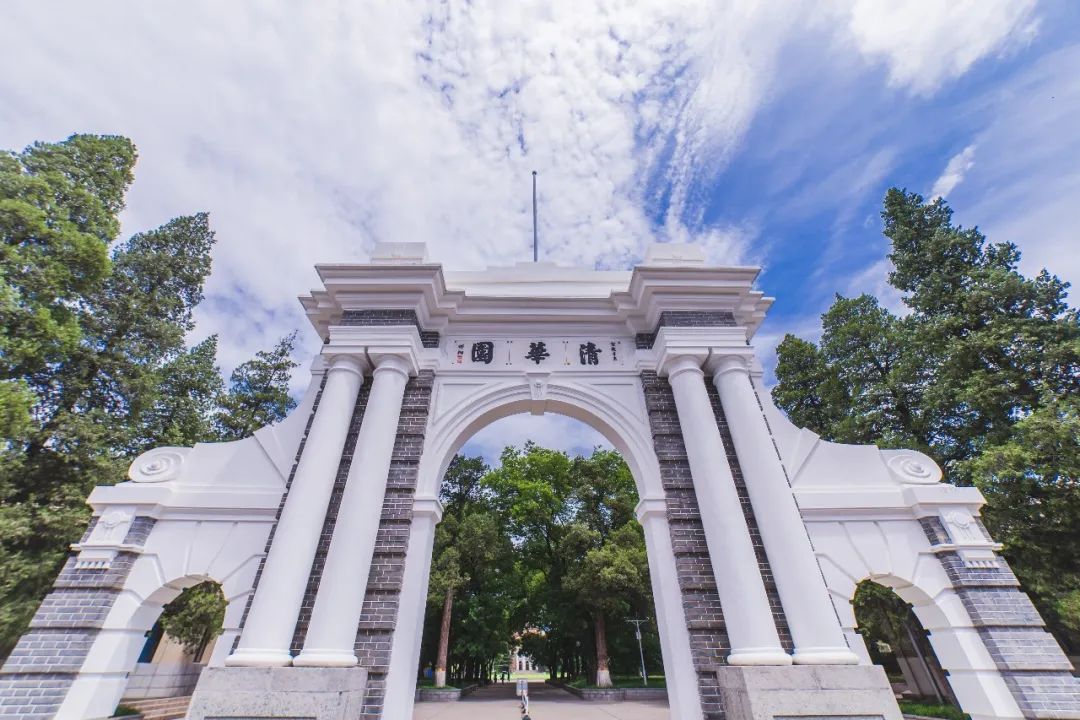
On the evening of July 9, Beijing time, the Special Meeting of University Presidents for the United Nations Decade of Action on Sustainable Development Goals (SDGs) kicked off online. During the two-day conference, presidents and vice presidents of more than 100 top universities from over 60 countries discuss the opportunities and challenges faced by the United Nations Sustainable Development Solutions Network (SDSN), and put forward cooperative and responsive solutions for the sustainable development of higher education to promote the solution of global issues in key areas. The conference was moderated by Jeffrey Sachs, Director of the SDSN, Professor of Economics at Columbia University, and Chair of the International Advisory Committee of Tsinghua SDG Institute (TUSDG).
At the conference, Qiu Yong, President of Tsinghua University and special guest of the conference, delivered a speech. Qiu Yong said that as the United Nations Sustainable Development Goals (SDGs) enter their fifth year, it is crucial for universities to further strengthen their cooperation with the United Nations.
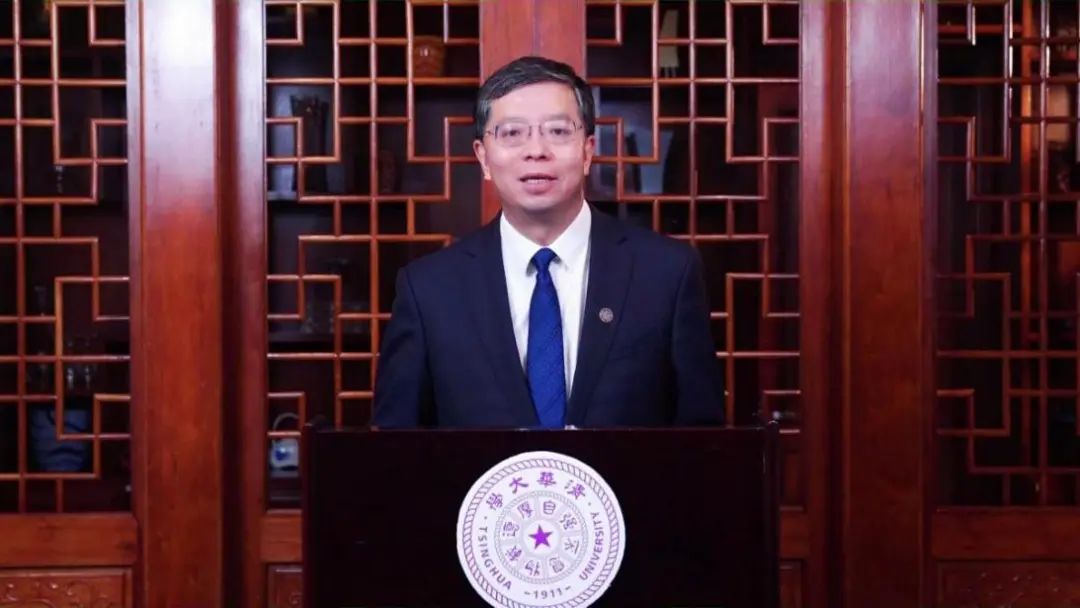
Qiu Yong's speech
Qiu Yong said that Tsinghua University has actively responded to the call for a “Decade of Action” on the SDGs and is committed to promoting the realization of the SDGs through research and education programs.In January 2017, Tsinghua University and the University of Geneva signed a memorandum of cooperation on sustainable development. In May of the same year, Tsinghua University initiated the establishment of the Institute for Sustainable Development Goals, Tsinghua University (Tsinghua SDG Institute/TUSDG), which has made substantial progress in SDG-related research. In addition, the two universities have jointly established the world's first dual master's degree program for the United Nations Sustainable Development Goals (SDGs), “Public Policy for Sustainable Development,” which will welcome its third cohort of students this fall.
Qiu Yong emphasized that Tsinghua University has an important mission to address the most pressing global challenges, such as climate change. In May 2019, 12 universities from six continents joined forces at Tsinghua University to establish the Global Alliance of Universities on Climate (GAUC), which seeks to elevate the leadership and role played by universities in the process of addressing global climate change. In January 2020, Chinese President Xi Jinping sent a letter to the GAUC's student student In January 2020, Chinese President Xi Jinping wrote back to the student representatives of the GAUC, expressing his appreciation for their common concern for the future of mankind. United Nations Secretary-General Antonio Guterres also recognized the Youth Declaration on Climate Change signed by student representatives of the GAUC.
Qiu Yong pointed out that Tsinghua University continued to improve the quality and inclusiveness of education during the Covid-19 Pandemic. On February 3, 2020, Tsinghua University held a university-wide “One Lesson Together” with more than 57,000 students and faculty members participating in the cloud. The university utilizes innovative technology to ensure the quality of online teaching and learning and to ensure students graduate on time. Tsinghua University also organized 147 online “clone classes” for universities such as Huazhong University of Science and Technology and Wuhan University, providing course support to the regions most affected by the epidemic.
Qiu Yong also introduced Tsinghua University's initiatives to promote international cooperation with global partners during the outbreak. on April 24, Tsinghua University and UNESCO jointly organized the “Special Dialogue on Global Universities: Online Education and Prospects of Universities under the Covid-19 Pandemic”. on April 2, Tsinghua University established the Vanguard School of Public Health and Wellness, with Dr. Margaret Chan, former Director-General of the World Health Organization, as its first Dean.
Qiu Yong said that the university of the future must be more open, more integrated and more resilient, that the learning of the future must be more self-directed, that the teaching of the future must be smarter, and that the education of the future must be more inclusive. In his speech, he expressed his wish to strengthen global cooperation in sustainable development, “Only by building closer and stronger partnerships with UN agencies can universities contribute to the realization of the SDGs; only by joining hands can we jointly realize this ‘Decade of Action’ plan and create a better future for humanity.”
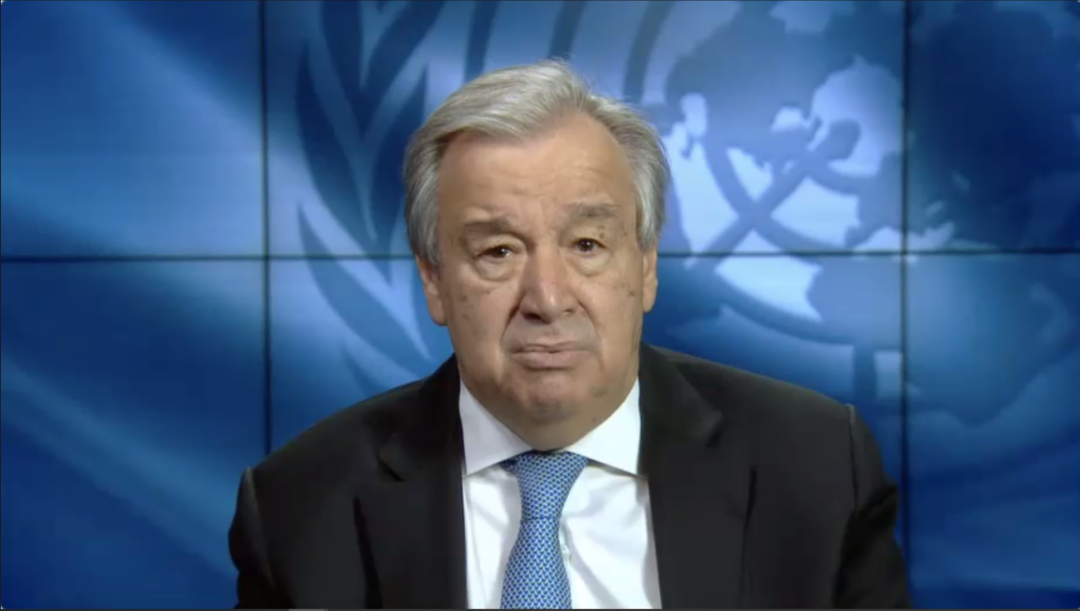
Statement by António Guterres
In a video message, UN Secretary-General Antonio Guterres said that in January 2020, the UN launched the Decade of Action on Sustainable Development Goals. He expressed his support for the initiative to promote the building of a global network of universities for sustainable development in the face of the challenges of the global Covie-19 Pandemic, and looked forward to the world's leading universities and institutions of higher learning working together to promote more effective multilateral cooperation and promote sustainable development in the world.
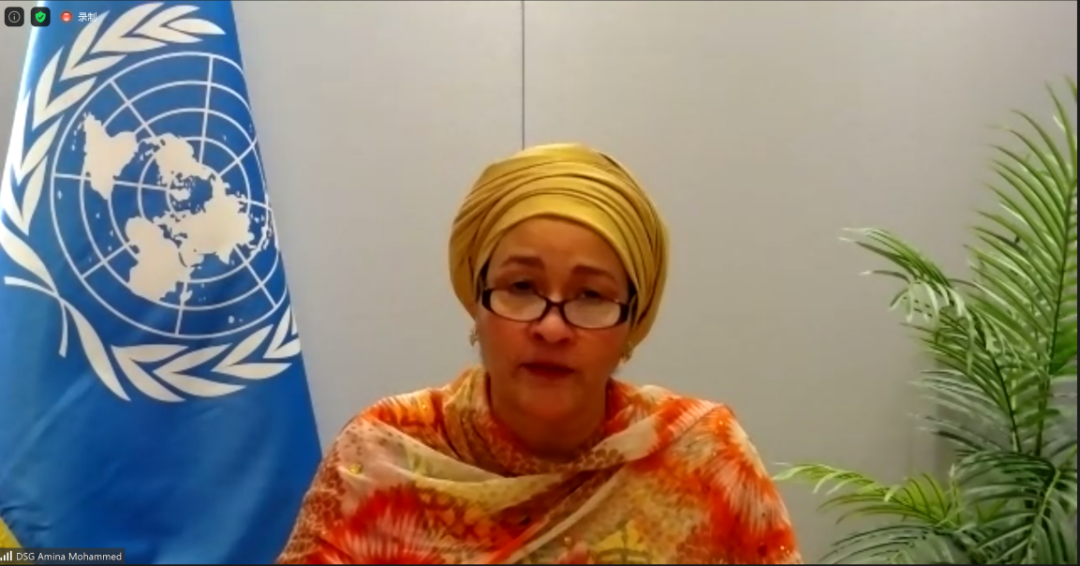
Statement by Amina Mohamed
The Deputy Secretary-General of the United Nations, Amina Mohammed, also expressed her best wishes for universities to promote sustainable development through her message. She said that universities and other institutions of higher education are a gathering place for great talent and have made incredible innovations and breakthroughs in the past, and expressed the hope that universities will help the world to accelerate the pace of sustainable development, tackle complex problems and advance innovative solutions.
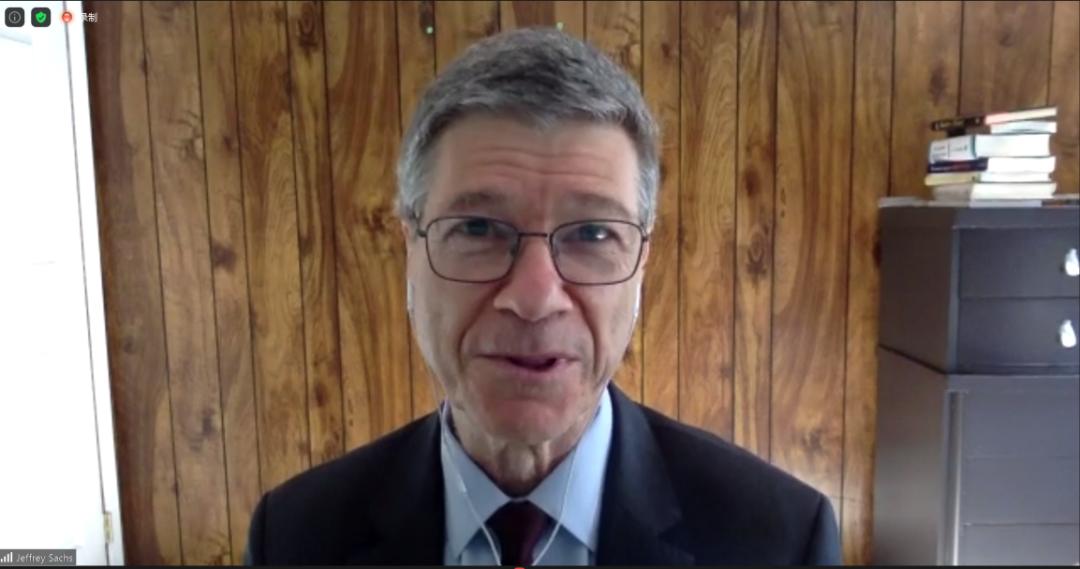
Statement by Jeffrey Sachs
Prof. Jeffrey Sachs, Director of the United Nations Sustainable Development Solutions Network and Chairman of the International Advisory Committee of the Tsinghua SDG Institute, expressed his appreciation for Tsinghua University's pioneering online teaching in the face of the pandemic and the series of measures taken to help other universities in the infected areas, as well as his approval of the idea of “building a more open and integrated university”put forward by President Qiu Yong. He said that throughout history, universities and university networks have played a decisive role in finding pathways to human well-being. He called for inclusive multilateralism in the face of the global Covid-19 Pandemic and supported the efforts of universities in strengthening the building of a sustainable global university network.
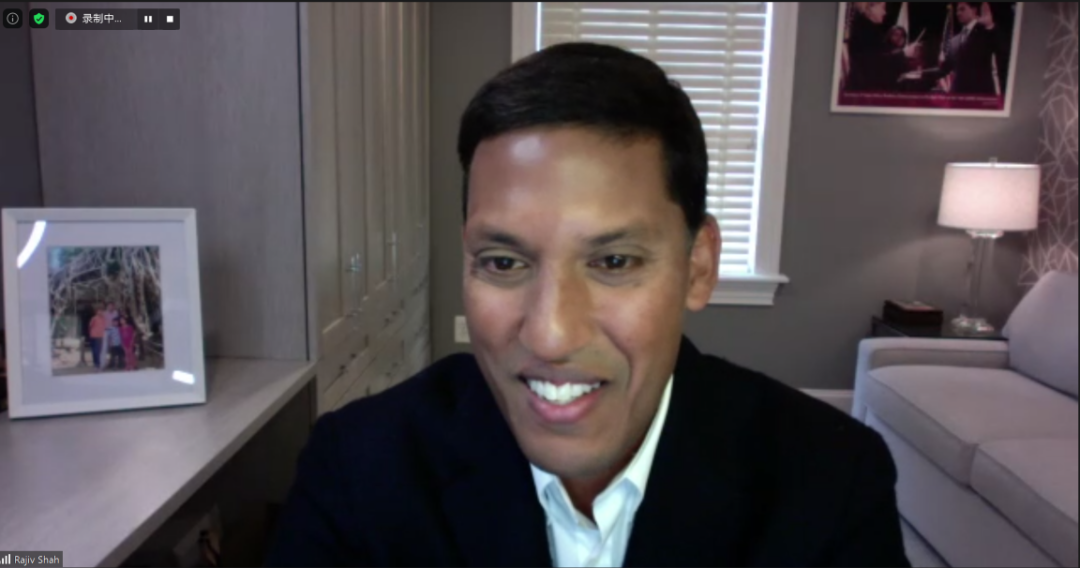
Statement by Rajiv Shah
Rajiv Shah, Chairman of the Rockefeller Foundation, said in his address that the Rockefeller Foundation has a more than 100-year tradition of working with educational institutions, especially higher education, and that its most valuable asset is precisely the network of scientists, educators, and leaders in universities. He believed that inclusion was a core value of the sustainable development goals and hoped that by building university networks, viable solutions could be developed to make the global community stronger.
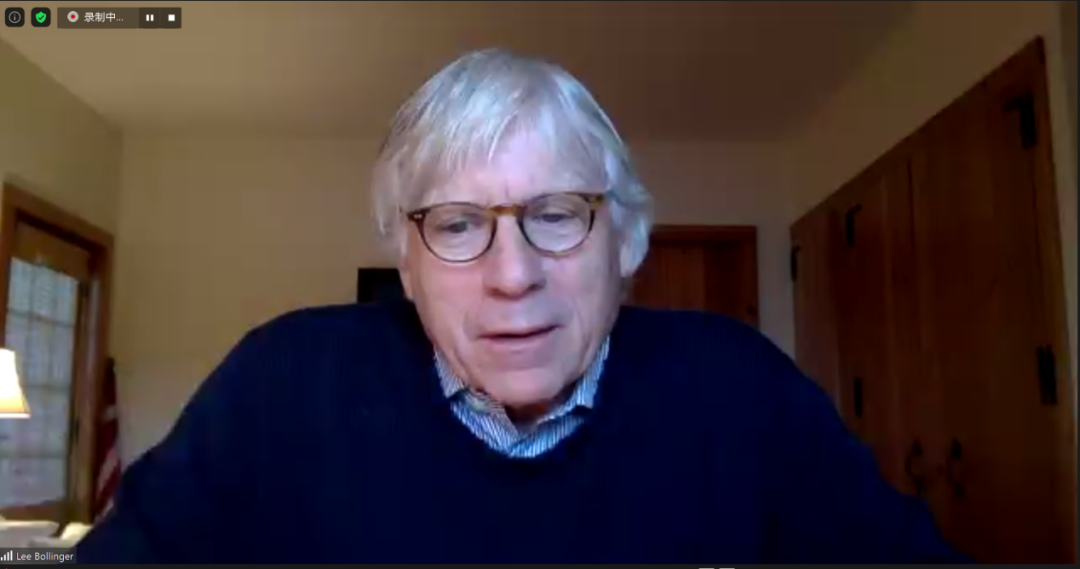
Statement by Lee Bollinger
Lee C. Bollinger, President of Columbia University, said that Columbia University maintains its mission to focus on and address global issues, while calling for the strengthening of the Global University Network as a major trend for the future. Jeffrey Cheah, President Emeritus of Sunway University, also shared his views on the Global University Network for Sustainability and recognized the role played by universities in his speech.
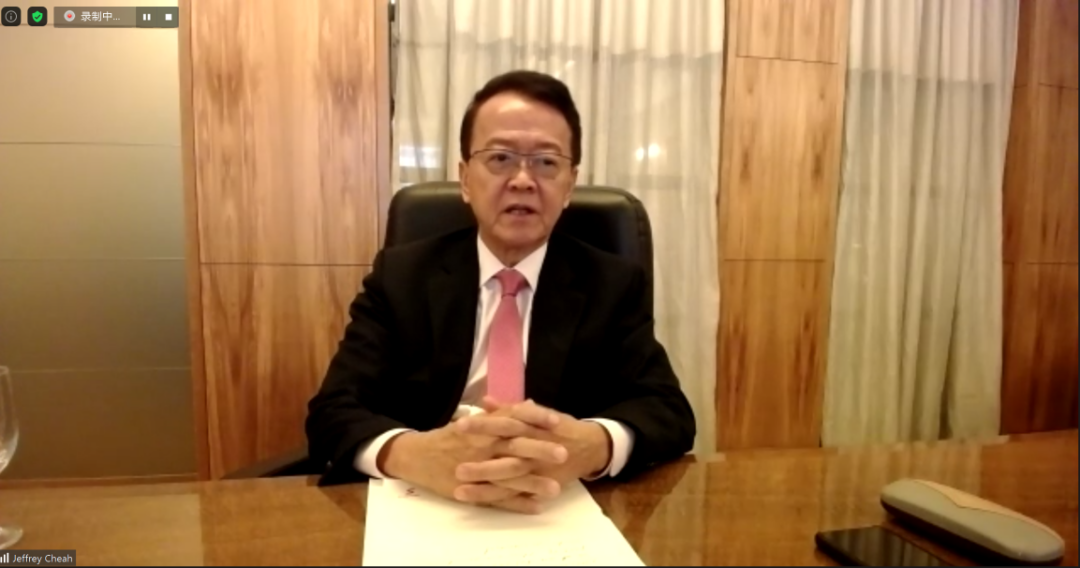
Speech by Jeffrey Cheah
On the topic “The Future of Higher Education in the Post-Epidemic Era”, Peter Wells, Director of UNESCO's Division of Higher Education, Joanna Newman, Secretary General of the Association of Commonwealth Universities (ACU), Hilligje Van't Land, Secretary General of the International Association of Universities (IAU), Shinobu Yume Yamaguchi, Director of the UNU Institute of Advanced Studies (UNU-IAS), Peter Lennie, Executive Director of the World Association of Universities and Colleges (WAUC), Wayne Frederick, Chancellor of Howard University, Raghunath A. Mashekar, President of Jio Institute, and Makoto Gonokami, President of the University of Tokyo and Chairman of the International Alliance of Research Universities (IARU), respectively, expressed their views on the United Nations Decade of Action on Sustainable Development Goals (SDGs) as a forward-looking initiative and the responsibilities of higher education. This was followed by a lively discussion on the theme “Strengthening the Global University Network for Sustainable Development”.
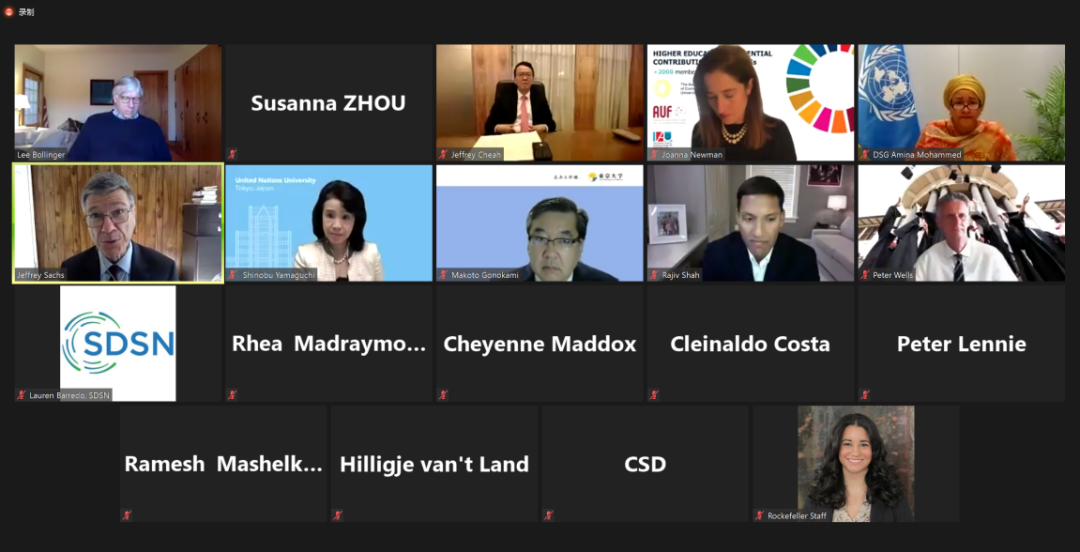
Online conference discussions
On July 10th, the conference continued to discuss the topics of “Universities and the Covid-19 Pandemic Crisis”, “Universities and Universal Values”, “Universities and Climate Change”, and “Sustainable Development Network Action Plan”, etc. Yang Bin, Vice President and Provost of Tsinghua University and Chairman of Tsinghua SDG Institute, delivered a speech at the sub-forum on Universities and Climate Change.
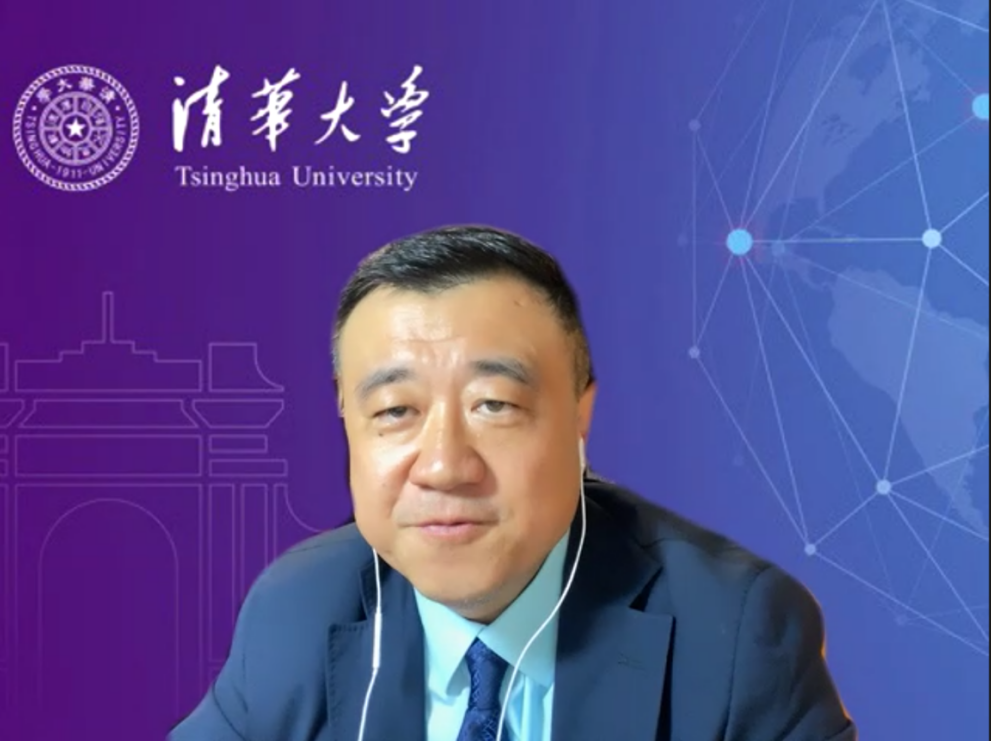
Statement by Yang Bin
Yang Bin introduced the efforts made by Tsinghua University in addressing climate change and the basic situation of the Global Alliance of Universities on Climate (GAUC). In May 2019, 12 universities from nine countries on six continents gathered in Tsinghua Park, and the GAUC was formally established, with Tsinghua University serving as the first presidential school of the Alliance. Since its inception, the GAUC has achieved fruitful results by focusing on the main aspects of joint research, talent cultivation, student activities, green campuses, and public participation.
Recovering from the pandemic and addressing climate change are by no means a zero-sum game, Yang Bin said, adding that while promoting economic recovery, we should also focus on the long-term goal of addressing climate change and pursuing a high-quality and sustainable recovery. Universities in the future will take on more social responsibility and play a more important role in addressing climate change, and the leading role of universities in the development of higher education will become more prominent. He looked forward to working with all of you to create a brighter future for the world.
Peter Piot, The London School of Hygiene & Tropical Medicine, Owen Flanagan, Professor at Duke University, and Phoebe Koundouri, Professor at the Athens University of Economics and Business, were among the guests who attended this session and delivered keynote speeches. Xue Lan, Dean of Schwarzman College at Tsinghua University, Senior Professor of Liberal Arts, and Co-Director of the Tsinghua SDG Institute, also attended the conference. As Co-Chair of the SDSN Leadership Council, Xue Lan was actively involved in the global sustainability agenda and contributed to the success of the conference.
Launched in 2012 by former UN Secretary-General Ban Ki-moon, the Sustainable Development Solutions Network (SDSN) aims to mobilize global scientific and technical expertise to promote sustainable development and the implementation of the SDGs, and to solve real problems. The Decade of Action for the SDGs, officially launched by UN Secretary-General Antonio Guterres in 2020, calls for accelerated action on the world's greatest challenges, such as poverty and climate change, in order to ensure the realization of the 17 SDGs by 2030. Universities are at the center of education for sustainable development, and play an exemplary and guiding role in the process of the whole society towards sustainable development. This special meeting of university presidents for the United Nations Decade of Action on SDGs aims to encourage the world's leading universities to take responsibility for initiating or participating in initiatives to promote education for sustainable development in support of the global sustainable development agenda by utilizing their strengths as think tanks.
Source| Tsinghua University

